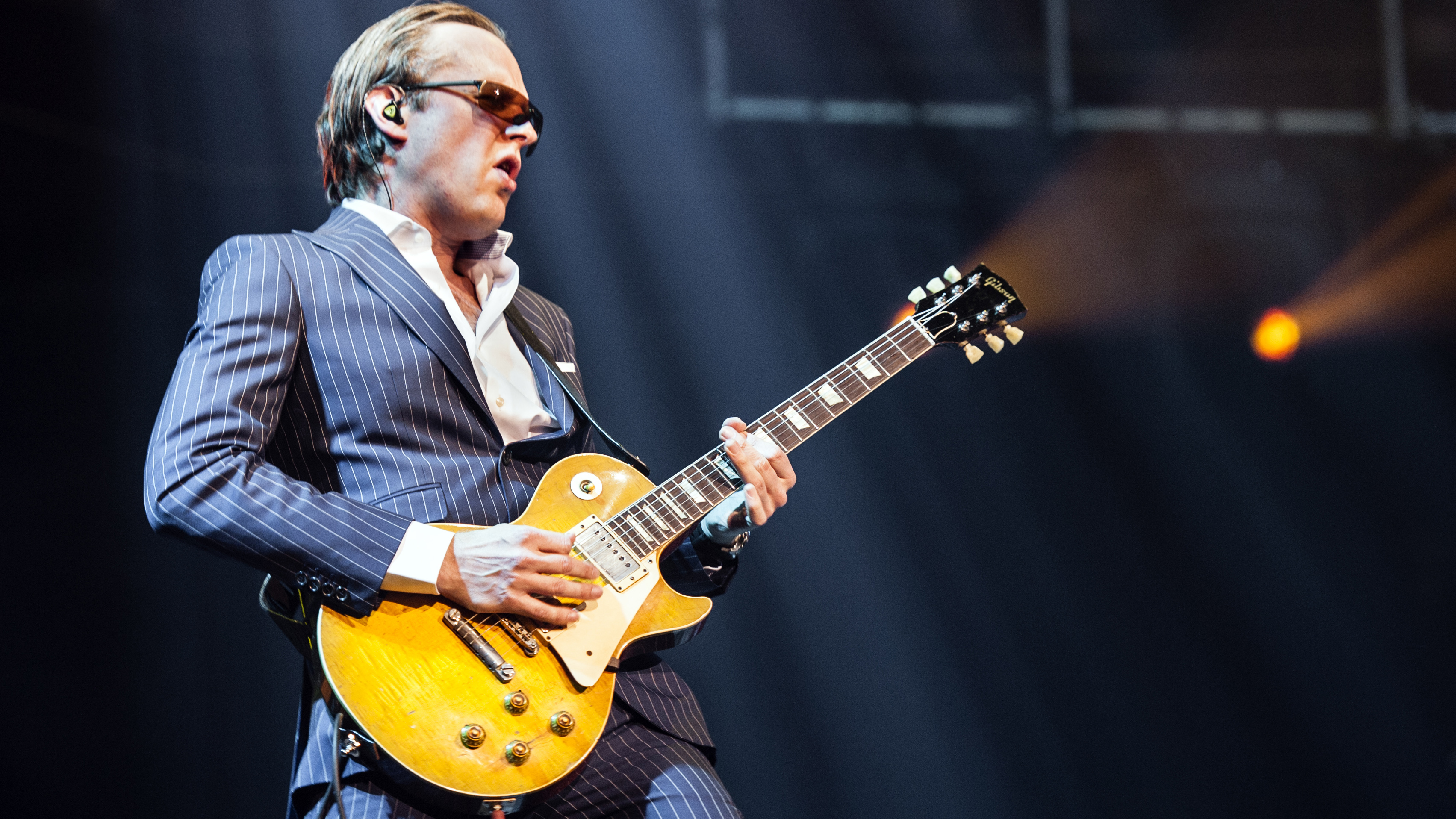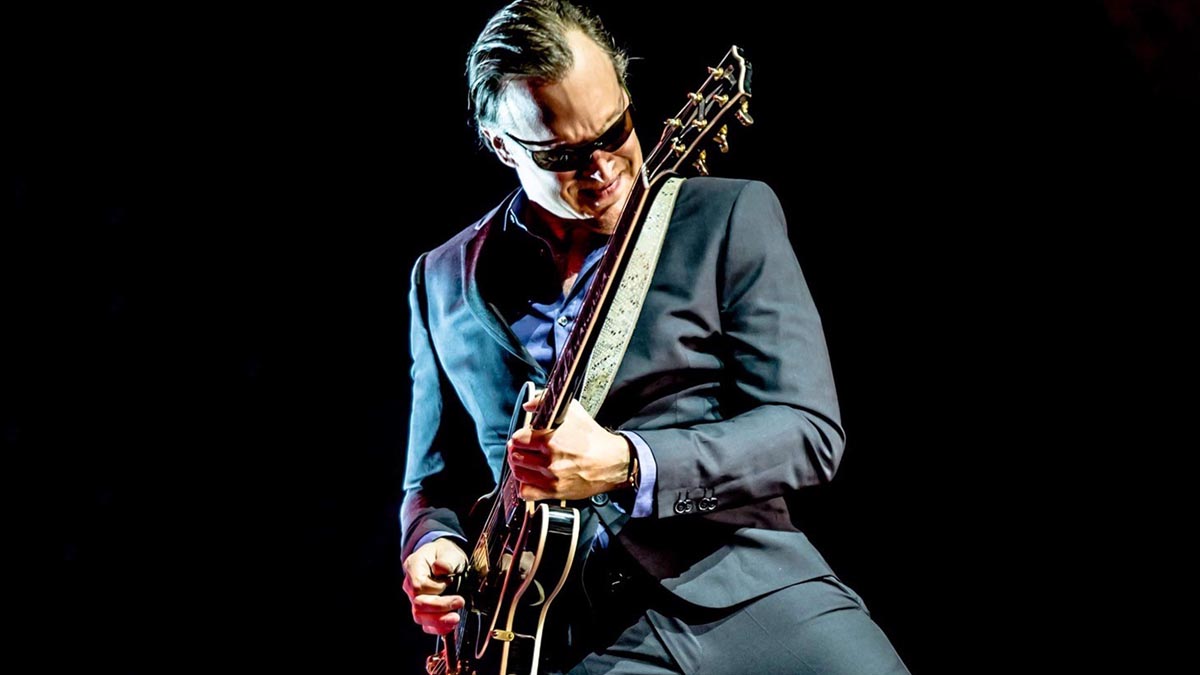Joe Bonamassa explains why stopping warming up before shows helped to reinspire his guitar solos: "I'm much more lyrical as a soloist"

Want all the hottest music and gear news, reviews, deals, features and more, direct to your inbox? Sign up here.
You are now subscribed
Your newsletter sign-up was successful
It's difficult to relate to the level of success and touring scale Joe Bonamassa plays at, but his new approach to warming up, or more not doing it, before shows is something maybe all gigging players can try. But it's linked to him actively questioning his methods to improvising solos live, and reaping the benefits of changes he's made.
"I've tried a new approach at the shows," he tells Dinesh Lekhraj in a new interview for the Gibson Guitar Guide. "We soundtrack [before] every show and maybe do one or two songs… as soon as I get the thumbs up from out the front, we're good. I save it for the show."

"It used to be where I used to warm up with a bunch of nonsense, just to get the hands moving," Joe explains, playing a fast run as an example."I stopped doing that. I'll soundcheck and I'll [play] a song that has a decent solo and I'll dig in a little bit and then I'll just shut down until the show. I found that my lyrical approach to soloing is better than if I spent a half hour [playing fast scales] because you're kind of programming yourself that it's your default."
If I go in kind of cold, I'm much more lyrical as a soloist – I tell a story,
The warming up was actually part of a bigger picture – it was Joe's whole approach to live improvisational solos that has shifted. And it was rooted in some self-doubt.
"If I go in kind of cold, I'm much more lyrical as a soloist – I tell a story," Joe continued. I find I'm speaking more with the guitar and making better note choices. Playing some stuff I don't normally play – without warming up. And I know that's a completely converse and diametrically opposed to what people say to do, but I found myself last year just saying [to myself] when I'm up there on stage, 'You suck, you're terrible' –this is the internal conversation." Joe also explains how he'd start drifting off during his own solos, wondering where he'd go for lunch the next day.
"I just kind of zend out, and I took a different approach," he admitted. "I calmed myself with the help of a couple of my close friends, and I said, 'I need to reapproach the way I look at this thing because I'm seeing it in too much of a linear way and I'm seeing too many boxes. I'm also overthinking it, going, 'I've got to do this and I've got to do that, I've got to get to that… ' this musical ADD thing that's happening internally. You've got just slow down and enjoy the moment. Don't dwell on the past and fret about the future. I found that approach, and not warming up, has improved my phrasing and my approach to the instrument because I'm coming in a much less affected and [more] clear-minded way.
If you're ever stuck in a rut I always say, stop playing
"And I know it sounds weird – and again, it's my opinion and my approach – but if you're ever stuck in a rut I always say, stop playing. Don't power out of it because you're gonna frustrate yourself and all the demons that lie in your head and gonna start creeping up into reality."
Want all the hottest music and gear news, reviews, deals, features and more, direct to your inbox? Sign up here.
Check out the full interview above.

Rob is the Reviews Editor for GuitarWorld.com and MusicRadar guitars, so spends most of his waking hours (and beyond) thinking about and trying the latest gear while making sure our reviews team is giving you thorough and honest tests of it. He's worked for guitar mags and sites as a writer and editor for nearly 20 years but still winces at the thought of restringing anything with a Floyd Rose.